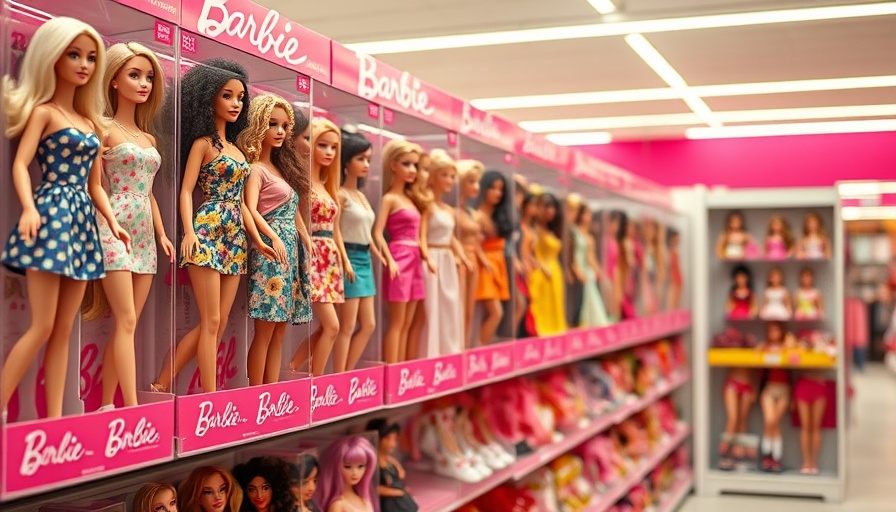
Mattel Partners with OpenAI to Transform Playtime
In a groundbreaking move for the toy industry, Mattel has officially embraced artificial intelligence by signing a unique partnership with OpenAI. This collaboration aims to integrate ChatGPT into the company’s beloved toy brands like Barbie and UNO, laying the groundwork for a revolutionary evolution in play experiences. By tapping into AI, Mattel is not just creating smarter toys; it’s redefining how children engage with their favorite characters.
The First-of-Its-Kind Deal
Mattel's agreement with OpenAI signals a significant first: the introduction of AI into major toy brands. OpenAI’s Chief Operating Officer, Brad Lightcap, emphasized the unique nature of this partnership, noting that, aside from collaborations with tech giants like Google and Reddit, this is their first direct engagement with a toymaker. This suggests a broader trend of integrating technology into traditional markets, bringing innovative digital experiences into family-friendly environments.
What Will AI-Powered Toys Look Like?
As anticipation builds, initial ideas about what AI-infused toys might entail are already being discussed. Potential products include interactive dolls that utilize ChatGPT to create personalized conversations with children, or enhanced card games like UNO, where the AI can guide players through rules and offer real-time strategy tips. Mattel's Chief Franchise Officer, Josh Silverman, shared insights into using character-driven digital assistants, bolstering not just toy functionality but also children’s imaginative play.
Employee Empowerment Through Technology
Moreover, this partnership extends beyond consumer products—it includes substantial benefits for Mattel’s employees. By integrating ChatGPT Enterprise into its internal operations, employees can access this AI tool to aid in product design. This paradigm not only enhances creativity through innovative brainstorming but also streamlines development processes, allowing for more efficient product launches. This could lead to a new era of rapid prototyping and game development at Mattel, aligning with the company’s plans to launch its first self-published game next year.
Merging Digital and Physical Play
As the toy industry continues to navigate a shifting landscape, merging digital gaming with tangible playthings has become increasingly crucial. In this age of technology, companies like Mattel recognize that children seek interactive experiences. By embedding AI features into toys, they not only keep up with competitors but also potentially elevate the educational value of play. With OpenAI’s support, Mattel has the opportunity to shape a generation’s interaction with toys.
Broader Implications for the Industry
This trailblazing partnership is part of a larger trend where the lines between physical toys and digital experiences are increasingly blurred. With OpenAI's recent acquisition of io, the company is positioning itself to embed AI in various consumer products, hinting at a future where everyday items are enhanced through advanced technology. As Mattel leads this charge in the toy industry, other companies may follow suit, ushering in new standards for interactivity and engagement.
Looking Ahead: The Future of Play
As this partnership develops, the anticipation surrounding the first product's announcement will undoubtedly build excitement within the toy industry and among consumers. Will we see a rise in toys that can adapt to a child's learning needs or respond to their emotions? The answer remains to be seen, but it’s clear that AI has the potential to redefine not just how children play, but also enhance crucial skills like creativity and problem-solving.
The fusion of Mattel’s iconic brands with OpenAI’s advanced technology holds great promise for the future of playful learning and innovation in toys. As we wait for this pioneering product release, one thing is certain: the future of play is bright, smart, and powered by AI.
 Add Row
Add Row  Add
Add 



Write A Comment